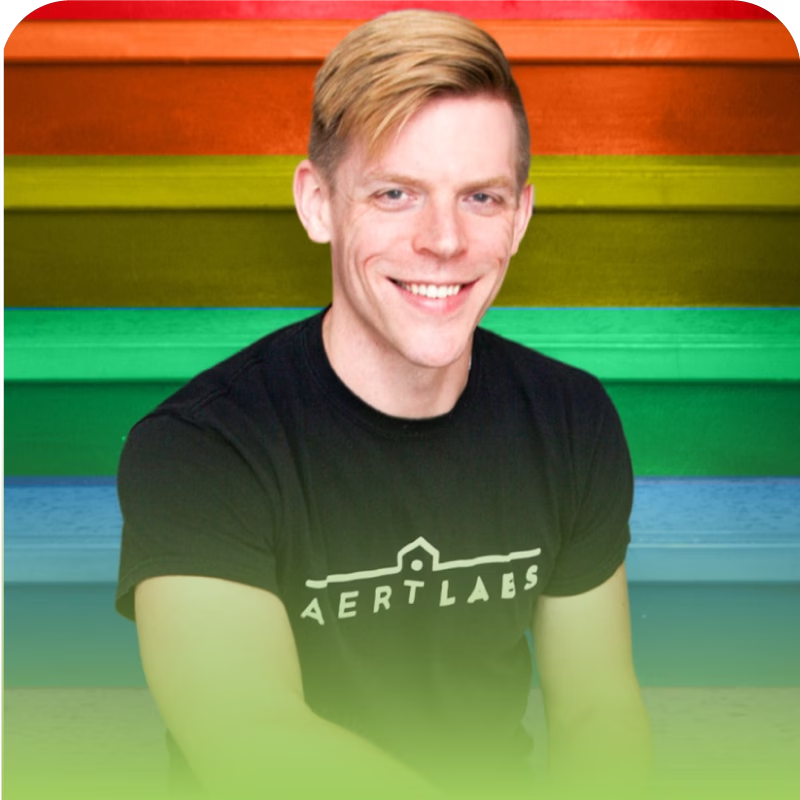Shad alum Daniel Urquhart deeply values the impact of role models. Reflecting on his experience working in tech as a gay man, he credits his openly LGBTQ2S+ colleagues—especially those in leadership—for showing him that being authentic was not only accepted but valued. Now, as Director of Software Programs at Alert Labs, Daniel is committed to paying it forward. He leads by example, encouraging his team to embrace their authentic identities and supporting them as they forge their own unique career paths.
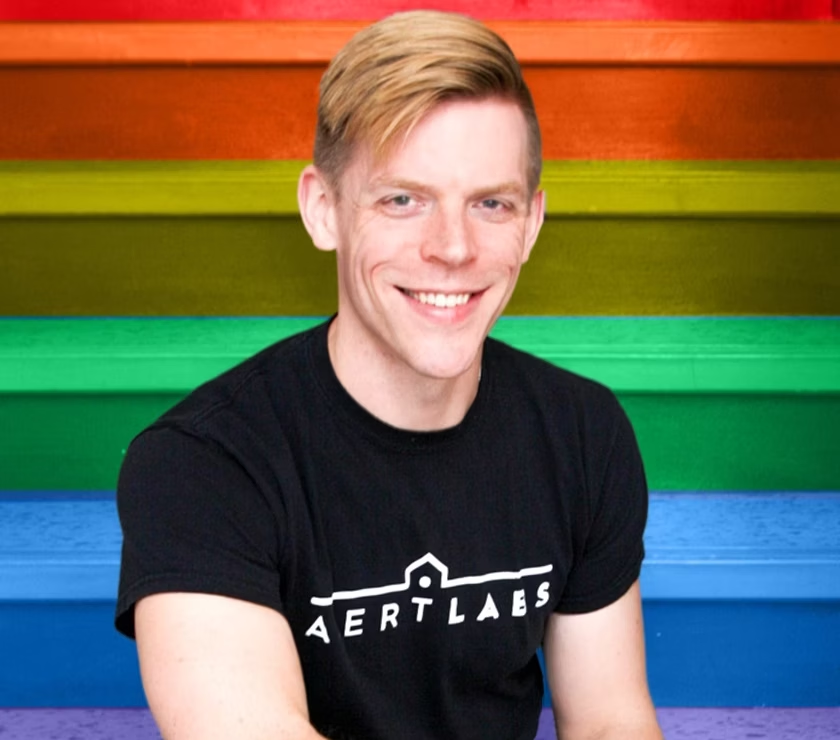
“The VP at one of the first companies I worked at was a lesbian, that was public knowledge, which told me I was ok to be myself at work. I really appreciated her taking that role, and it inspired how I am now in my own leadership role where I do make an effort to be transparently out because I think that having people who are out in leadership roles can really provide a lot of reassurance to more junior staff who may worry if they can be themselves, whoever that is.”
Even before he began his career in software engineering, Daniel understood the power of a positive role model. He was fortunate to have wonderful mentors growing up, one of whom was a teacher who saw Daniel’s love of computer programming and encouraged him to apply to Shad where he’d be able to explore that passion alongside other high achieving youth, learning from academic and field experts.
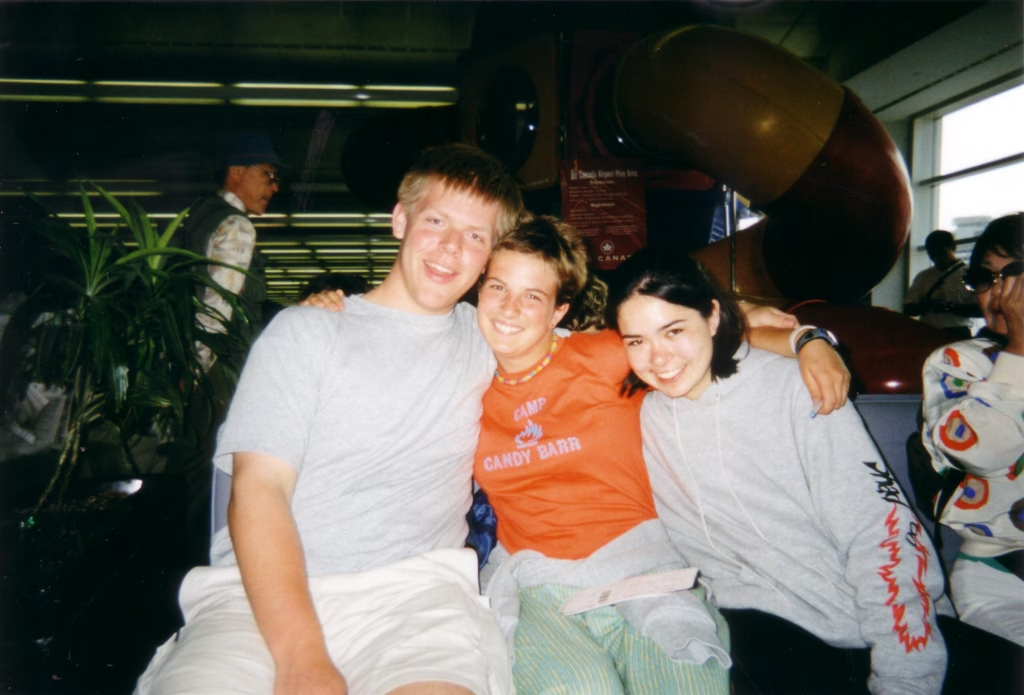
“Lou Green, a teacher who was a pretty amazing mentor to me as a kid, had heard about Shad and provided the materials and encouraged me to apply and go do this neat thing. I loved tech and engineering and having the opportunity to go to the University of Waterloo (UW), which was the place to be for engineering, seemed like an awesome opportunity. And it really was. I met these other amazing students and learned so much, it was really interdisciplinary. It was an incredible exercise in both life and academic skill building.”
Coming from a small town in British Columbia, Daniel felt like he really found his people at Shad. He didn’t always feel like he “fit in” at his high school, but at Shad he felt like he finally found peers with whom he could connect meaningfully.
“At Shad I was engaging with all these people who were very intellectual, thoughtful people in all different kinds of crazy ways. It wasn’t just computer kids who wanted to write a program or play video games, there were people who were really passionate about things like art and the intersection of art and technology. It felt good to be surrounded by other passionate kids.”
His summer at Shad not only solidified Daniel’s desire to pursue software engineering at university, but it also helped him make connections with professors in the Engineering Department at UW, giving him useful insights into the programs available and what an experience at the University might look like.
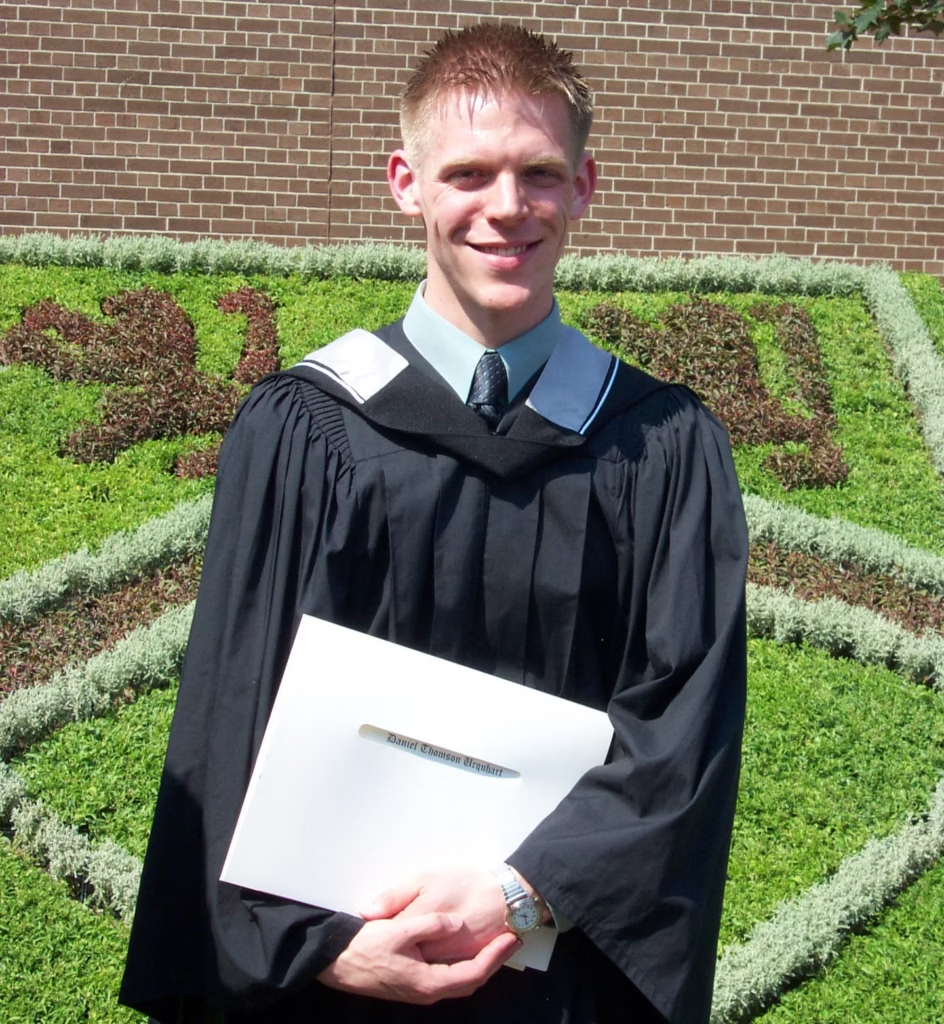
“I got to meet some people who worked in computer science and engineering at Waterloo, and we were able to learn about the programs and ask questions. I learned how interdisciplinary the Engineering program was at UW, and I loved that. I applied the first year the Software Engineering program was available at the University, and I felt really good about my decision because I’d had that opportunity to gain those insights at Shad.”
Daniel’s experience at the University of Waterloo was incredibly formative. Not only was he able to pursue a career he was passionate about, but the open and accepting community on campus created the sense of safety he needed to share his gay identity with friends and family.
“It was probably the middle of grade 12 that I came to the conclusion that I was gay. I was raised fairly conservatively, so it took me quite a bit of thinking before I got there. At university, the environment was very open and so I felt comfortable coming out to friends, a couple of whom were also gay, which was really validating and helped me to be more confident sharing that part of myself with other people.”
The level of acceptance Daniel received from those around him, including the minister at United College (formerly St. Paul’s College), who shared with Daniel that he was feeling joy at having just performed the first same-sex marriage ceremony in Waterloo, gave him the confidence he needed to embrace his identity as he focused his attention on building the skills needed to thrive as a software engineer. He began to explore different job roles through the co-op component of his program, discovering where he thought he might best apply his talents.
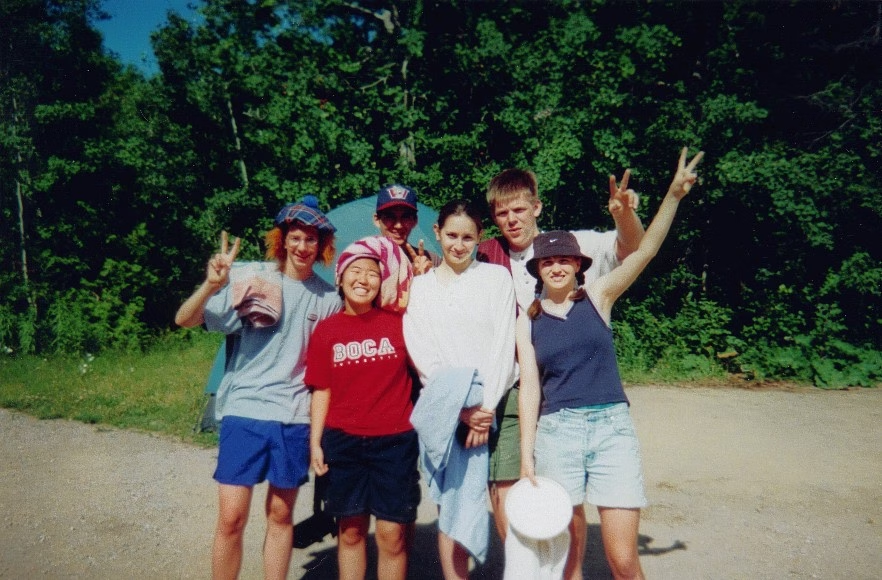
One of my co-op placements was with a startup called Arius Software founded by two guys from UW. It was a great experience because they were building this company just the two of them and co-op students, so I got a lot of great experience doing all kinds of different things. I went back for three more terms and gained a lot of responsibility quickly as I became the more experienced student helping the new students who came on board.”
Daniel was hired on at Arius full time as the company’s first Software Developer after graduating. Though the role included code writing, he was also responsible for client management and Research and Development for the company’s “Open Advantage” platform used by many in the brokerage industry. Because Arius was small firm, he had the opportunity to perform multiple roles and learn skills he might not have otherwise. ”My time with Arius really taught me a lot about myself and where my skills were best directed.”
After a few years at Arius, Daniel took on a new role as Product Developer at Christie Digital Systems, a global visual technology company that makes things like large digital projectors. Daniel loved the role and the amazing new technologies he had a hand in developing for iconic companies like Disney and Universal Studios, as well as important medical devices.
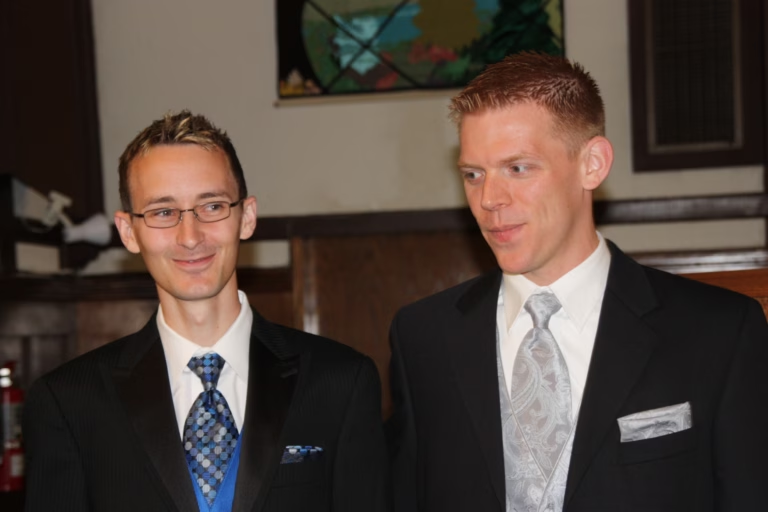
“The first product that I helped develop was the VeinViewer, a medical product that still feels very sci-fi. It’s this bar that looks almost like a big flashlight with light going sideways. You hold it above someone’s skin, and it detects the blood in their veins and projects that onto their skin in real time, almost is like an x-ray flashlight. It’s amazing, very helpful for things like drawing blood and giving medical shots.”
Daniel felt like he was at the forefront of digital technology at Christie Digital, where he developed real-time, multi-projector 4K solutions when 4K was still a relatively new technology on the market.He did more hands-on coding during his first year with the company but quickly moved into leadership roles where his superiors saw he could contribute meaningfully.
“My first leadership role was managing very junior employees. And then, I had to manage, in some cases, people with a lot more experience than I had. And so that was a very different experience where you realize you’re not trying to help them necessarily solve the technical problems but managing how they interact with the rest of the business to help keep them focused on solving the right problems.”
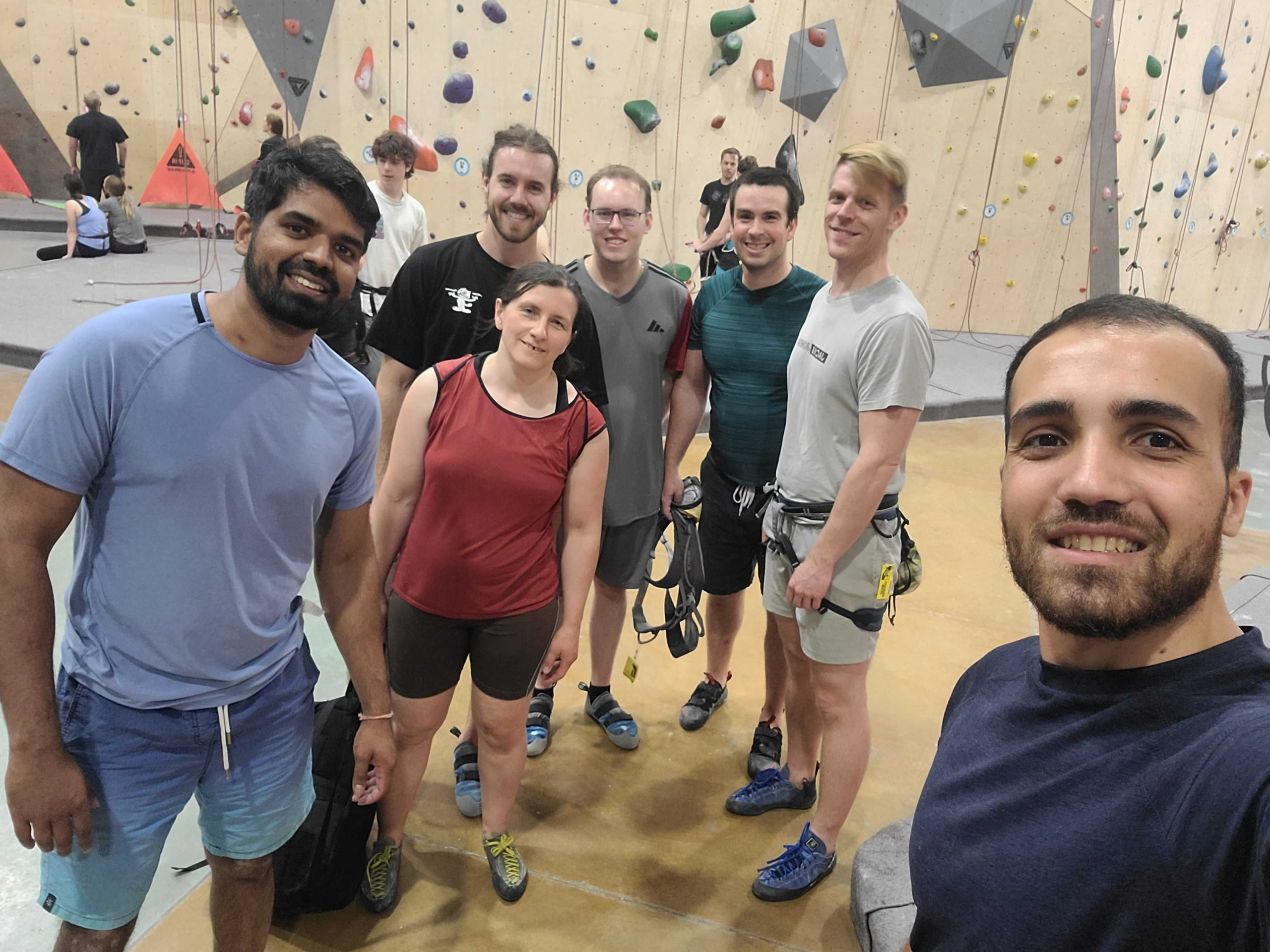
Daniel sees each leadership role as having helped make him a better leader. In his current role at Alert Labs, a technology company that designs award winning water and A/C intelligence solutions, Daniel leads the software teams’ handling of data from thousands of IoT (Internet of Things) of devices and the presentation of that information as interactive web pages, apps, reports, and alerts. As a member of the upper management team, he’s grateful for the opportunities he’s been trusted with over the years to build on his potential and stretch his leadership capabilities so that he can in turn mentor those coming up behind him.
“I love that a part of my job is helping junior staff figure out where they want to be and seeing where that desire aligns with a role that we have in the organization, and how we can match those things up and help them get there. I think it’s an easy win to just ask your team members, ‘where do you want to be in a few years?’ And then have a conversation that might help them identify what matters to them and where they think their skills would be best applied.”
But Daniel has also learned that leadership isn’t about having all the answers. It’s about creating space—space for innovation, for courage, and most importantly, for people to be fully themselves. As he celebrates Pride Month, he hopes that his own leadership will continue to help the next generation to not only see themselves as welcome in the field of technology, but also to see their capacity to make a meaningful impact in the world alongside people who love and support them.
“I hope young people know there’s a community of people who are like them or who aren’t like them, but like working with them and being around them. I would tell them that there’s a community of people that are going to be your people and you’re going to find them, like I did at Shad, and life’s going to be pretty great, so understand who you are and stay true to that. The rest will follow.”
